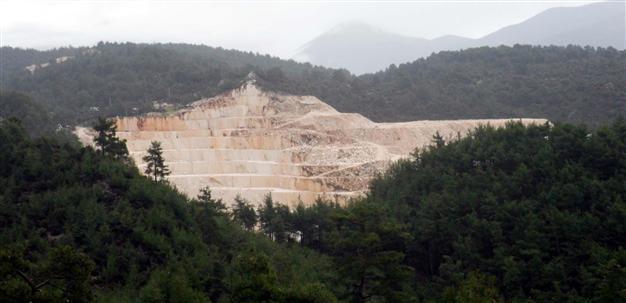Environmental activist sued for ‘obstructing’ stone quarry firms’ works in southern Turkey
Salim Uzun ANTALYA / HÜRRİYET

The Beydağları Mountains, where the companies are operating, are also known for their countless archeological sites of significance. DHA Photo
Stone quarry firms operating on the steep mountains along the Mediterranean Coast in the southern province of Antalya have launched a lawsuit against an environmental activist who denounced the destruction of nature from the extraction of marble blocks.
Ali Ulvi Büyüknohutçu, spokesman of the Platform to Fight with Stone Quarries in the Finike district, said he has been accused of publishing “before and after” photos from when the company cut down cedars and junipers in the areas they were operating at, near the Alacağ village within the Finike district.
“So I have published on YouTube how the stone quarries destroyed nature using explosives, saying ‘may this be a gift for the most environmental-oriented prime minister.’ Moreover, I have published pictures of ‘before and after’ the centuries-old cedar and juniper trees were felled. It seems the price to pay for my activities is 100,000 Turkish Liras,” Büyüknohutçu said, adding he had even been accused of cooperating with the outlawed Kurdistan Workers’ Party (PKK).
“The capital owners’ attacks [on me] to prevent the support that villagers have been lending me have become so disgusting, they have even spread the rumor that I was financed by the PKK,” he said.
The Beydağları Mountains, where the companies are operating, are also known for their countless archeological sites of significance.
Lawsuits filed against many of those companies are also ongoing, Büyüknohutçu said.
The government is currently criticized for bending the regulations regarding protected areas, such as the National Park regulation, so as to more easily allow private companies’ activities.
